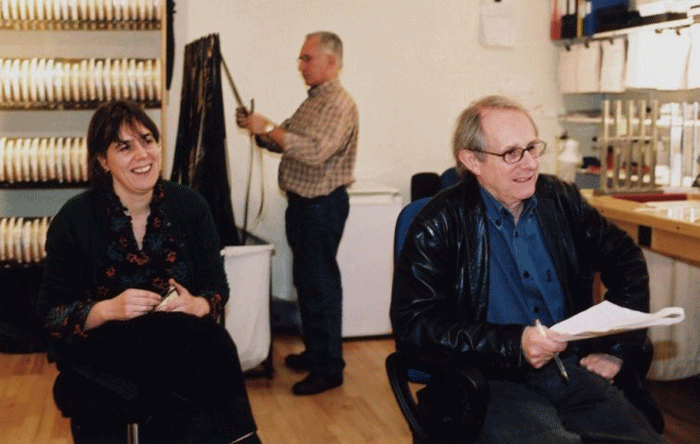It's less glamorous than directing, but film producing can be the reel deal

Ask any cinema-obsessed teen what job they'd like in the film industry, and the chances are that they'd choose to be an actor or a director. There's no doubt about it: being a film producer just doesn't have the same ring. But as anyone in the industry will tell you, a producer's role is arguably the perfect job for the all-rounder with an interest in the big screen.
The career has certainly changed a great deal in recent times. While previously there were no typical routes into film production – pestering the smaller companies and offering your services for free was one of many – there are now a bewildering number of options for people looking to combine an interest in film with a fulfilling career. The recent explosion in media studies courses has arguably made things even more confusing.
That's why Skillset, the sector skills council for the creative industries, decided to give special recognition to the best film schools in the country. The top six institutions were dubbed screen academies, and are now widely considered as the best places to train for a career in the industry. Three of them are in or near London, with the others located in Bournemouth, Edinburgh and Newport.
The academies offer a full range of study options, from casual summer schools to full-time undergraduate or Masters courses. Because some of the programmes are aimed at people who already have experience in the field, they can also be fiercely competitive. The MA in film-making at the London Film School, for example, takes just six people each year. This is a good reflection of the industry: if you're going to make it as a producer, you'll need to show persistence and competitiveness in equal measure.
"You need a combination of business acumen and salesmanship, but you also need to know how to spot a great story when you see one," says Janine Marmot, who was a producer for many years before becoming director of film at Skillset. "Producing can also be a very long journey from start to finish: it's not uncommon for a film to take five or seven years to make. It's not enough to read a short story or newspaper article and think: 'That would make a great film.' You need to actually make it happen, by pulling together all the different strands, from financing to casting."
Producers need to be able to tell a great script from a mediocre one, so having a creative spark definitely helps. But having vision is even more crucial: you can't turn a writer's ground-breaking idea into reality without the right amount of money, so you'll need to secure funding.
When the film is in the development phase, a producer might be working closely with a few people for months; during shooting, they'll suddenly be in charge of a crew of 50 or more. It's a career for fixers, not perfectionists, and it isn't for everyone.
"Most producers have a freelance or self-employed kind of lifestyle," says Marmot. "It can be extremely insecure, so you need the right attitude: you have to be a multi-skilled multi-tasker who can handle having three separate films on the go at the same time. If you crave security and constancy, it's definitely not for you; but if you thrive under pressure and don't want to work in an office, it can be wonderful."
Rebecca O'Brien, 50, has been an independent film producer for 20 years. Working in partnership with Ken Loach, she has nine feature films to her name, including 2006's The Wind That Shakes the Barley, which won the Palme d'Or at the Cannes Film Festival. She admits that producing isn't as glamorous as directing – but fame was never part of her agenda.
"In those days, nobody thought that a young woman could do the job of a producer," she says.
"It was only for big fat men with cigars and a lot of money. But I had a great love of film and the arts when I was a kid, and both of those are essential prerequisites. If all you want to do is make yourself famous, you're in the wrong job, but my desire was always just to get involved in making films.
"Producing is about getting your hands dirty: it's for people who aren't amazingly good at one thing, but are good at a lot of things. The director is the mouthpiece of the film throughout – and that's fine by me."
How to get on in film production
* To find out more about making a living out of film production, call the Skillset careers helpline on 08080 300 900 (England and Northern Ireland); 0808 100 8094 (Scotland); 0800 0121 815 (Wales); or visit www.skillset.org/careers
* The BBC's Filmmaker's Guide is an excellent resource for anyone producing or directing their own short film. www.bbc.co.uk/dna/filmnetwork/filmmakersguide
* The New Producer's Alliance ( www.npa.co.uk) is a good way to network
Join our commenting forum
Join thought-provoking conversations, follow other Independent readers and see their replies
Comments
Bookmark popover
Removed from bookmarks